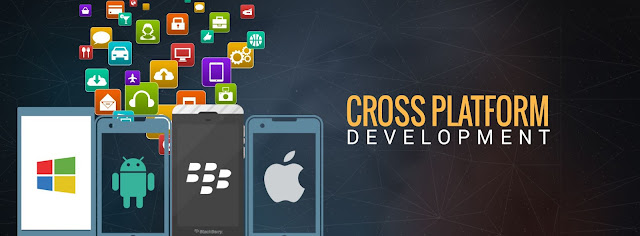CROSS-PLATFORM MOBILE APP DEVELOPMENT
Why is it a win-win business to choose it?
The choice depends on various
factors including target audience, business goals, and features of the future
product, and, of course, the budget you are keen to spend on the development of
the mobile app.
And for all these purposes, the
best solution will be platform-independent mobile apps. The biggest difference
between a built-in and platform-independent mobile app is the functionality and
authority given by the device on which the application will run. But it’s
understood that nothing is possible with 100% reliability and quality we always
compromise to some extent.
There are many companies across the globe that
is doing business in developing and offering services regarding cross-platform
mobile applications. Some of the most popular cross-platform/platform
independent frameworks are listed following:
Flutter
It is an excellent alternative
for rapid application development at a fairly low cost. This interface allows
you to implement all the main features of the application, it is good for
start-ups that need an MVP, and also you can by using it to shorten the market
time.
React
Native
It is another effective platform-independent application development technology. This tool, which is based on JavaScript, allows us to easily design and develop user-friendly mobile applications from scratch to fully functional mobile applications that can support both Android and iOS-based devices. In addition, you can develop mobile platform-independent apps with well-known frameworks such as Python or C #. All this is within the power of experienced platform app developers.
Why choose cross-platform application
development?
Although many developers insist
on domestic applications, platform-independent technology offers several
benefits simultaneously.
·
It is budget-friendly and cost-effective.
·
It provides seamless functionality.
·
It is easy to provide code exchange between
different versions of applications.
·
It provides an easier implementation.
Rapid development is also one of
its merits. Developing built-in apps takes twice as long as multi-platform
apps. Maintenance takes much time and consumes money as development since
developers must detect flaws and issues specific to each platform and generate
new updates as a result. So speed is a reason that should also be considered
when choosing from domestic and platform-independent apps to develop.
Regarding the shortcomings, the
most important lack is full access to a platform-independent mobile app to the
device's API. But it’s all due to system security and dignity that can’t
compromise at any level. In addition, it is not uncommon for
platform-independent mobile applications to have lower performance than
domestic ones. But you do not have to pay twice as much as the developers to
develop two or more separate applications for each platform. And this is the
biggest benefit that platform-independent mobile applications are so
appreciated for today.
Creating a really effective app
with great UX / UI design is of course a task that you should not entrust to
the first freelancer you come across. Therefore, it is better to carefully
choose a platform-independent mobile app development company if you do not want
to spend money on its further development, testing and improvement in the
future.




Comments
Post a Comment